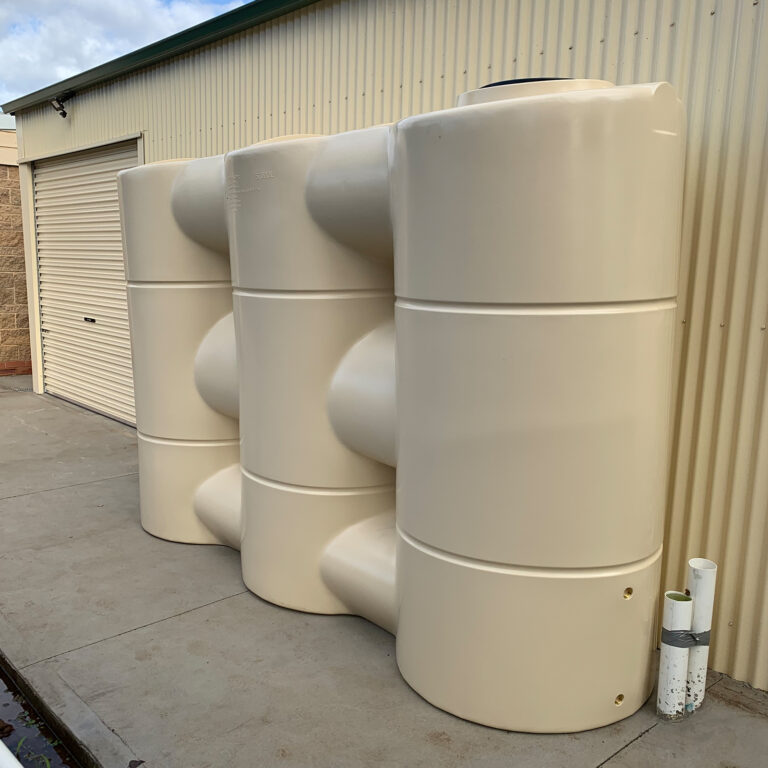Trustworthy Slimline Water Tanks: Optimize Your Water Storage Capability
Trustworthy Slimline Water Tanks: Optimize Your Water Storage Capability
Blog Article
Exploring the Numerous Usages of Rainwater Tanks for Residential and Commercial Properties
As the global emphasis on sustainable living techniques continues to intensify, the application of rainwater tanks in both property and industrial setups has arised as an important solution. These tanks use a storage tank for rainwater harvesting, providing a myriad of possible applications that expand far beyond simple storage space. From watering to toilet flushing and landscaping, the adaptability of rain containers is vast. Their combination right into business properties opens up a realm of opportunities for eco aware organizations. The complex uses rain containers present a compelling case for their adoption, not only as a practical water-saving measure however also as a testimony to liable source administration.
Advantages of Using Rain Storage Tanks
Making use of rainwater containers uses countless advantages for both households and neighborhoods in regards to water preservation and sustainability. Among the crucial benefits of using rain containers is the considerable reduction in reliance on mains water - Slimline water tanks. By catching and storing rain for later use, people and neighborhoods can decrease their need for cured water, eventually easing the concern on water therapy centers and decreasing power usage associated with water transportation and treatment
Additionally, rain harvesting with tanks supplies a reliable different water source throughout times of water restrictions or lacks. This kept rainwater can be used for different non-potable functions such as irrigation, flushing toilets, and cleaning clothing, decreasing the strain on typical water resources. In addition, utilizing rain tanks can result in set you back financial savings for both homes and neighborhoods by decreasing water bills and decreasing the requirement for pricey infrastructure expansions to satisfy expanding water needs.
Essentially, the usage of rain containers offers a sustainable and ecologically pleasant strategy to water management, benefiting both individual users and the more comprehensive area in terms of water conservation, cost-efficiency, and durability.
Rain Storage Tank Use in Watering
Offered the benefits of rainwater storage tanks in preserving water resources and decreasing reliance on mains water system, a substantial application lies in utilizing kept rainwater for irrigation purposes - Slimline water tanks. Rainwater harvesting systems can efficiently collect and store rainwater, providing a sustainable water resource for sprinkling yards, grass, and farming fields. By using rainwater for irrigation, homeowner can lower their reliance on treated water sources, resulting in cost financial savings and ecological advantages

One of the main benefits of using rain for watering is its purity. Rain is naturally soft and without the chemicals and ingredients typically located in mains water, making it ideal for nourishing plants without the danger of harmful impacts. In addition, rainwater is at ambient temperature level, which can benefit plant growth by avoiding temperature shocks that can take place with cool mains water.
Rainwater Containers for Toilet Flushing

Carrying out rainwater containers for bathroom flushing is an affordable and eco-friendly practice that can be conveniently integrated right into both property and commercial buildings. The kept rainwater can be utilized to flush commodes by connecting the container to the existing plumbing system. This straightforward yet efficient solution can substantially decrease water usage in a building, especially in locations where water shortage is a problem.

Integrating Rainwater Tanks in Landscaping
These storage tanks can capture and keep rainwater try these out runoff from roofs, which can after that be used for sprinkling gardens, grass, and plants. By using rain for irrigation objectives, residential property owners can minimize their reliance on local water sources, leading to set you back savings and preservation of precious water resources.
Along with offering a lasting water source for landscape design needs, rain containers can also aid in managing stormwater drainage. By capturing rain that would certainly otherwise move into storm drains pipes, these containers can mitigate disintegration, reduce flooding dangers, and prevent contamination of all-natural water bodies. Additionally, including rain tanks in landscaping can add to the total aesthetic charm of the building, showcasing a commitment to environmental stewardship.
Commercial Applications of Rainwater Storage Tanks
Utilizing rain containers in industrial settings offers a sustainable remedy for water monitoring and conservation, benefiting organizations and the setting alike. One essential commercial usage is for watering objectives, where collected rain can be utilized to water landscaping, yards, and farming fields bordering industrial homes.
Moreover, rain storage tanks can be integrated right into the fire suppression systems of business buildings. By having a dedicated water resource for view firefighting functions, businesses can improve their fire precaution and potentially reduce insurance policy premiums. In addition, rainwater gathered in tanks can be dealt with and used for non-potable functions within commercial buildings, such as flushing toilets, cleansing, and cooling systems. This not just preserves freshwater sources but likewise lowers operating expenses for businesses. Generally, the unification of rainwater containers in commercial settings offers a practical and ecologically liable method to water monitoring.
Conclusion
Finally, rain containers offer many advantages for both domestic and industrial properties. From irrigation to bathroom flushing and landscaping, the use of rainwater tanks can help save water sources and lower water costs. In addition, including rain containers in business setups can cause substantial price financial savings and ecological benefits. Generally, the versatility and sustainability of rain containers make them a beneficial financial investment for any kind of homeowner looking to raise water performance.
Report this page